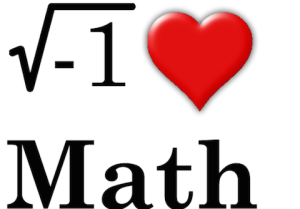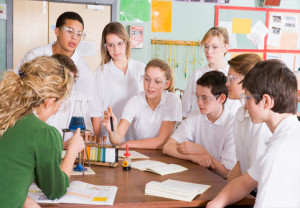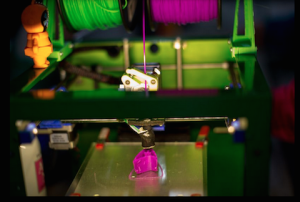Chefs Know More Than Just Recipes: How Experts Differ From Novices
By Tim Hudson
Chefs Know More Than Just Recipes: How Experts Differ From Novices first appeared on the DreamBox Math Learning Blog, on April 15, 2014
Many years ago I surprised my wife by cooking a new meal. I read through our entire Betty Crocker cookbook to find just the right recipe and went to the store for the ingredients we didn’t have: ground cayenne pepper, white vinegar, and ginger root. These items are forever stuck in my memory because they were unfamiliar to me and therefore seemed unusual. At the time, I didn’t know there were different colors of vinegar, and ginger root looked so bizarre that I boldly asked the clerk at the register, “How many people actually buy this thing?” In hindsight, it was an embarrassing question to ask for a number of reasons; the least of which is because as it turns out, fresh ginger is delicious. Looks can be deceiving.
The great thing about cookbooks is that they are designed so that culinary novices—like myself—can accomplish one narrow task (prepare a recipe). Culinary experts can certainly use cookbooks too, but they’re not typically designed for expert chefs. And importantly, cookbooks are not designed to enable and empower novices to become experts, but rather to provide explicit instructions for what to do in the kitchen. I’ll discuss more about novices and experts in a moment because it’s as important for learning cooking as it is for understanding mathematics, and really any subject area. And if you’d like to learn more, the second chapter of the book How People Learn is actually entitled “How Experts Differ from Novices.”
Thanks to the clear instructions in the cookbook, I was able to follow the recipe. The meal was amazingly delicious and over the years I’ve cooked it dozens of times. In fact, I’ve cooked it often enough that I now know it from memory, and I don’t even need to review the recipe. I never specifically sat down and memorized the ingredients or steps word for word, but through repeated use, the recipe has become a part of my acquired knowledge. The key to the recipe seems to be the sauce, where chicken broth, sugar, soy sauce, cornstarch, white vinegar, and ground cayenne pepper are mixed together.
As an educator, I can’t help but reflect upon what my knowledge of this recipe and the ability to create the meal from memory indicates about my deeper understanding of food and chemistry. Does the fact that I can execute this recipe perfectly every time from memory serve as evidence of understanding, or is it simply a skill that I’ve acquired through repetition but without comprehension? Exactly what do I understand about cooking, ingredients, and their interrelationships within the recipe? Truthfully, as an assessor, I believe that the answer is, “Nothing.” I’m very much a novice in the kitchen in general, and even though I can repeatedly recreate this one specific recipe with ease and delicious results, I am by no means an expert.
For example, using sugar, chicken broth, soy sauce, and cayenne as ingredients makes sense to me because I know what they taste like individually. But I don’t understand why they need to be added in the ratios called for in the recipe. Or why—when combined with garlic, ginger root, cornstarch, and white vinegar—they taste so good. Over the years I’ve been told by others that cornstarch thickens the sauce. I can see that the sauce does thicken, but how do I know that’s not a result of the soy sauce or sugar? I’ve never tried making the recipe without cornstarch, so to believe the “cornstarch thickening hypothesis” I just trust what others tell me. I didn’t ever make sense of the “thickening theory” on my own, so I can’t really understand it. Also, of all the ingredients, the white vinegar makes the least sense to me. To begin with, I don’t really know what vinegar is or even how it’s made. And until I read this recipe, I didn’t even know there were different kinds and colors of vinegar. Would the dish taste different if I used a different color of vinegar? Or would red vinegar change the color of the sauce?
Ultimately, I don’t really comprehend anything about the recipe, except how to follow the steps. And although I don’t understand the reasons for the steps, I trust them because they are coming from a reliable source, and I can observe that they work when I follow them. Based on my rote knowledge of the recipe, I can demonstrate skill in executing it, but I have no true comprehension or understanding of the relationships between the ingredients or any reasoning behind the processes or order of the steps. If I were attending a culinary school, what might be done to help me deepen my expertise as a chef? I would expect that it would be something different than simply more practice following recipes.
Many students feel the same way about math as I do about cooking. Though they probably don’t think an expert chef is someone who has simply memorized a stack of cookbooks, they likely believe that mathematical expertise is demonstrated by knowing multiple algorithms and remembering an ever-increasing list of confusing procedures. Their understanding of the multiplication algorithm or quadratic formula is often at the same novice level as my understanding of cooking; their typical questions are: What’s a placeholder? Why am I carrying a 2? What would happen if I went left-to-right instead? Why do I take the square root? Why must that b value be negative?
It’s not enough for our students to be novices in mathematics, because the goal of learning is transfer and independent use in new situations. I imagine that’s why cooking reality shows and competitions don’t simply give a group of contestants the same recipe and ingredients and ask them all to prepare the same dish. Instead, contestants are presented with complex challenges and restrictions without instructions that require critical thinking and expertise.
Novice cooks follow instructions and execute with knowledge and skill. Expert chefs do that, too, but they also invent new recipes based on their understanding of ingredients and methods. We need all students to be “expert chefs” with numbers, algebra, and mathematical reasoning. Which means they’ll need more than a “math cookbook.” No amount of isolated skill practice or following procedures without understanding can cause these critical learning outcomes. Students need thought-provoking challenges, sense-making experiences, and the opportunity to develop understanding that will empower them to cultivate true expertise in mathematics.






